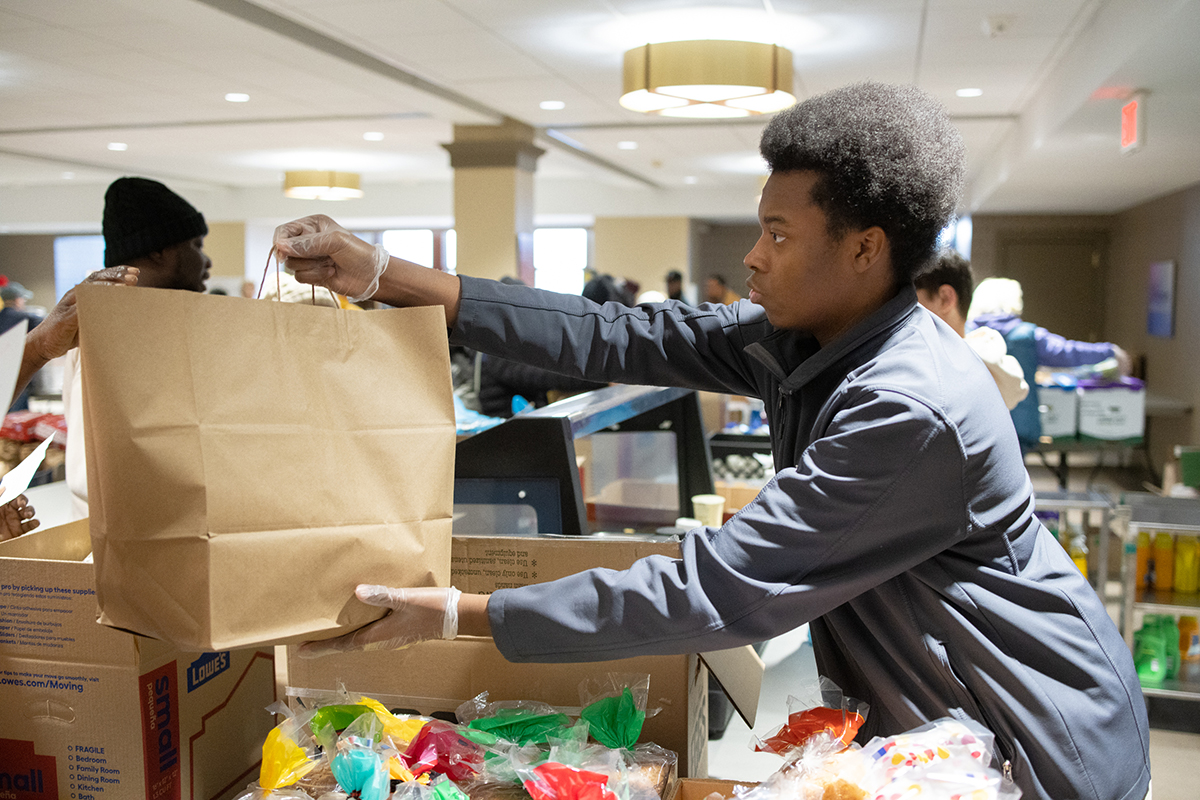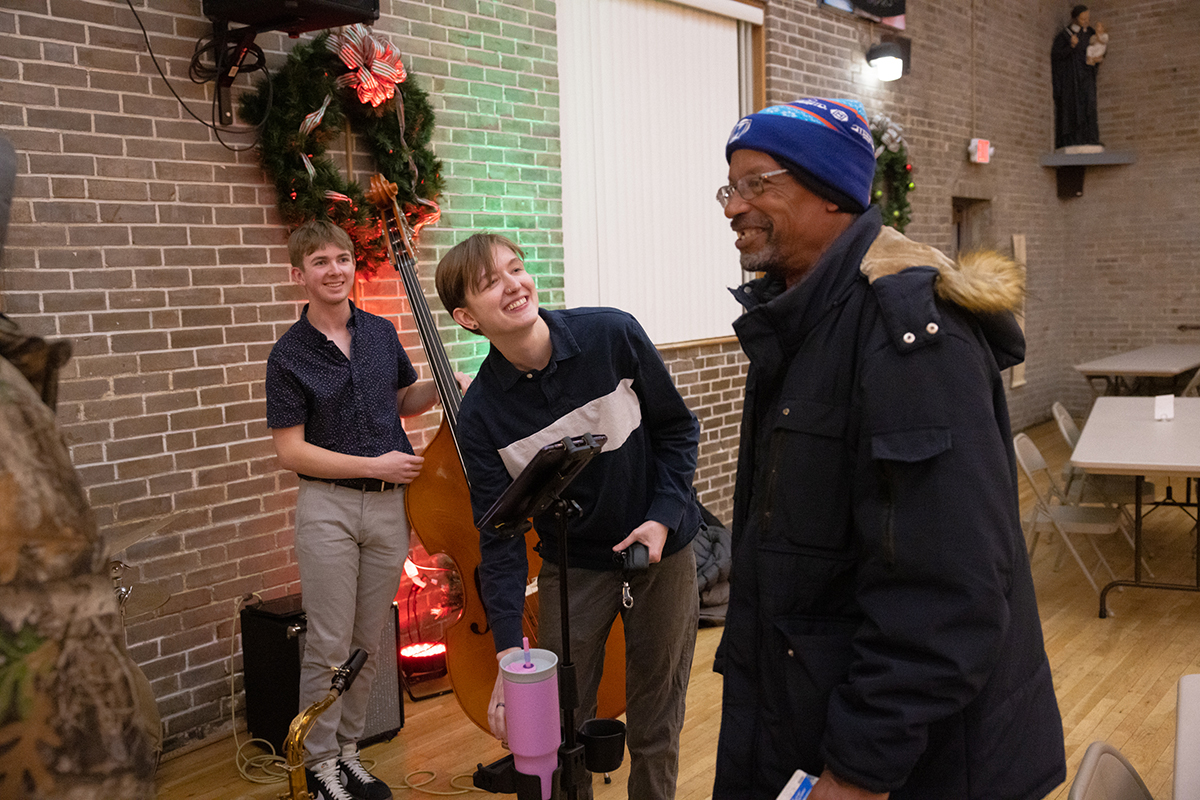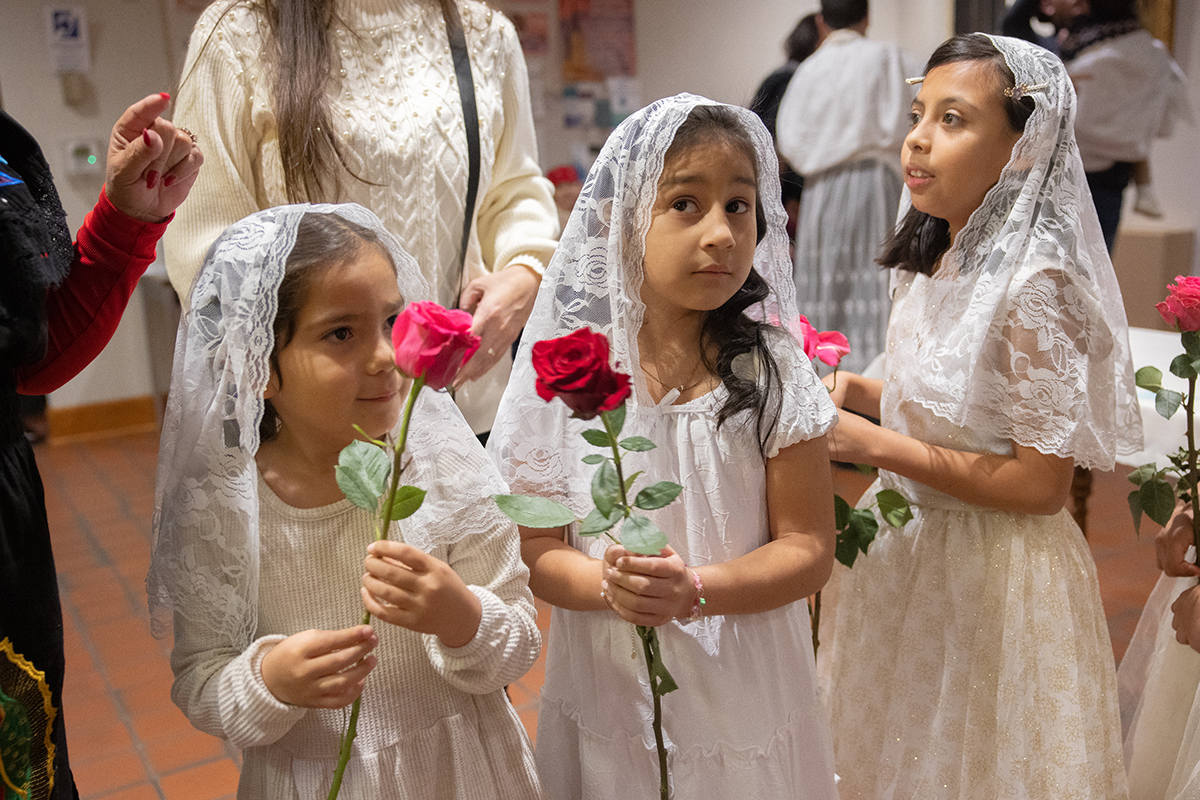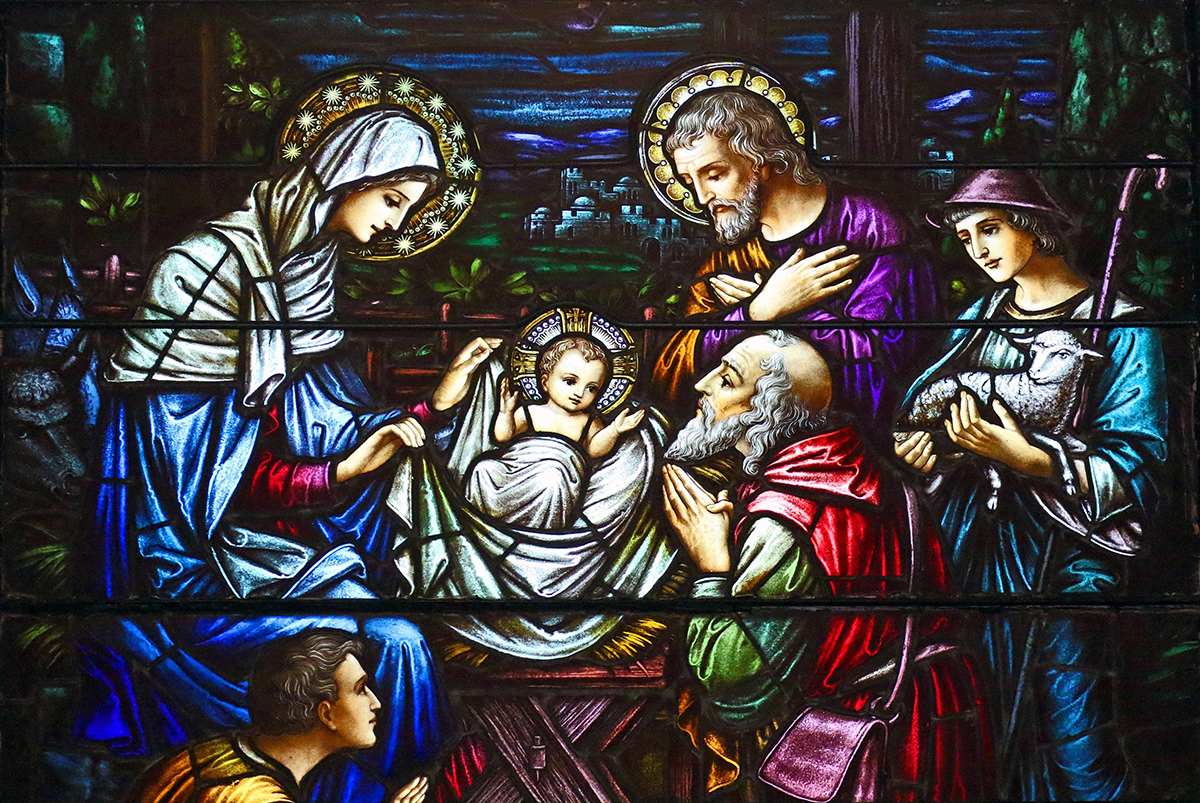St. Joseph’s Academy teacher Katie Lodes helps her students move from thinking to action
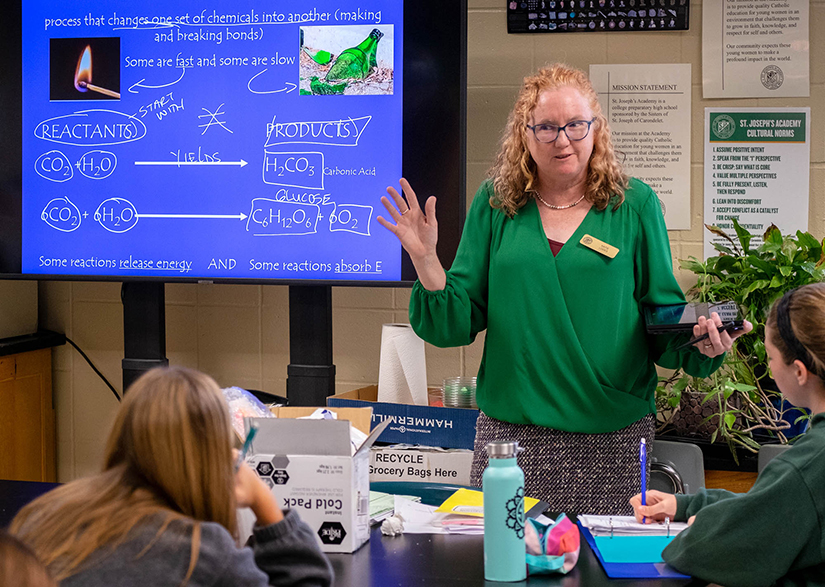
Bestowed with a presidential honor, St. Joseph’s Academy science teacher Katie Lodes has a hands-on approach in helping students pique their curiosity
During a freshman honors biology lesson, Katie Lodes introduced her students to chemical reactions, explaining how some release and some absorb energy. On an enlarged computer screen, she demonstrated the equations needed for each and asked her students to differentiate the two, using cold packs and glow sticks as examples.
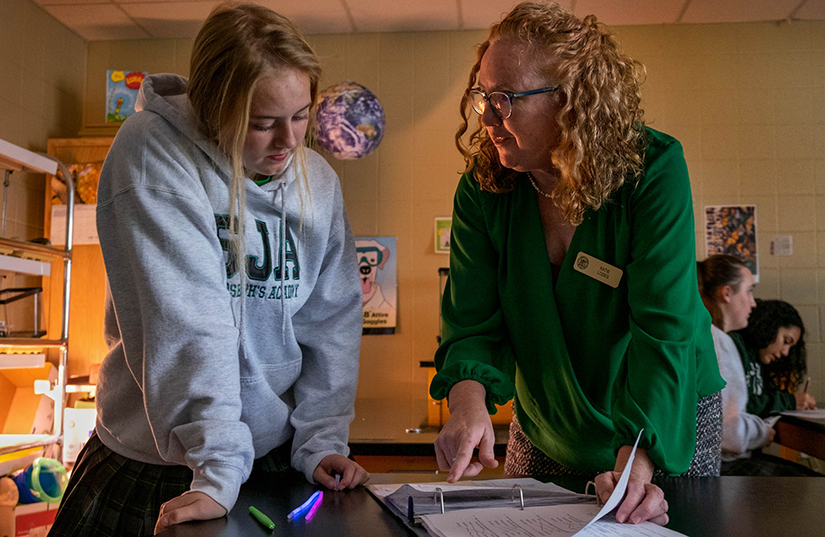
After experimenting with both items in the lab, Lodes called on student Grace Zolla, who conceded at first that she wasn’t certain about the differences. When Lodes walked her through one of the equations, Grace immediately made the connection.
“So, it’s absorbing,” she said.
“You got it,” Lodes nodded at her protégé.
Building a solid scientific foundation and learning by doing are two hallmarks of Lodes’ teaching style. For 29 years, she’s taught science in Catholic high schools, most recently at St. Joseph’s Academy in Frontenac for the past 19 years. She also uses every opportunity in her lessons to show students the intersection of faith and science.
In October, Lodes received the Presidential Award for Excellence in Mathematics and Science Teaching. The award, facilitated by the White House Office of Science and Technology Policy, is the highest honor bestowed by the U.S. government on elementary and secondary math and science teachers. A member of Holy Infant Parish in Ballwin, Lodes was one of four math and science teachers from Missouri and the only high school teacher from the state to earn the award, which was presented at a ceremony Oct. 17 in Washington, D.C.
Of course, she immediately deflected any attention given to her for receiving the award, noting that it’s the students, as well as the rest of the staff at St. Joseph’s who help students take their learning to the next level — moving from thinking to action. It’s something she described as “blended boundaries.”
“It’s not just me,” she said. “Every one these teachers here has the students thinking outside of the box. Everything is so intertwined, and our students are so well-rounded and encouraged in every discipline. We’re going to hit a point where it’s not just biology class, and that’s good. It’s using all of this information together.”
Lodes teaches biology, including an AP course for seniors, zoology and marine science. She also helps lead an independent research course, which allows students to explore topics above and beyond the regular curriculum. This year, Lodes is mentoring three students, including senior Emma Mueller, who is examining how ionizing radiation could have an effect on multiple generations using volvox, a multicellular algae. Lodes connected her student with the Donals Danforth Plant and Science Center, which provided the volvox samples, and the Missouri Coalition for the Environment, an organization that has been outspoken about how residents near Coldwater Creek have been chronically exposed to ionizing radiation for decades through inhalation and indigestion.
Lodes also has encouraged several students to present their projects before science experts at the American Geophysical Union in Washington, D.C., and the Academy of Science St. Louis Science Fair honors division competition. “When it came time for the the honors fair, that was easy,” she said. “Well, it’s not easy, but at that point they’ve already been grilled by experts in the field” at the American Geophysical Union.
Getting students engaged in science extends beyond how they perform on a test or complete a project. In fact, learning from mistakes is one of the most important lessons Lodes imparts upon her students. In chatting with a group of juniors recently, she asked how a test went, with one junior admitting that she missed a few questions. “Then she said on her own, ‘But I learn better that way,’” Lodes later told her freshman students. “It’s true. Sometimes when you miss something, you’re going to understand it better than if you write it down and get 100%.”
Bringing together faith and science comes naturally to Lodes, who noted that all of her classes begin with a prayer, a reminder of God’s daily presence in their lives. “God gave us a brain to use, and the Catholic teachings help us to use this for the greater good,” she said. “It flows naturally, and that’s why I teach at a Catholic school. Faith is all around us.”
By giving students a solid foundation, Lodes hopes that her students curiosity will be piqued to explore even more. “I want them to be knowledgeable about what’s happening in the world,” she said. “I want them to realize that they have an influence on what’s occurring in our world — and coming from a Catholic school, an obligation to take part in it.”
During a freshman honors biology lesson, Katie Lodes introduced her students to chemical reactions, explaining how some release and some absorb energy. On an enlarged computer screen, she demonstrated the … St. Joseph’s Academy teacher Katie Lodes helps her students move from thinking to action
Subscribe to Read All St. Louis Review Stories
All readers receive 5 stories to read free per month. After that, readers will need to be logged in.
If you are currently receive the St. Louis Review at your home or office, please send your name and address (and subscriber id if you know it) to subscriptions@stlouisreview.com to get your login information.
If you are not currently a subscriber to the St. Louis Review, please contact subscriptions@stlouisreview.com for information on how to subscribe.


